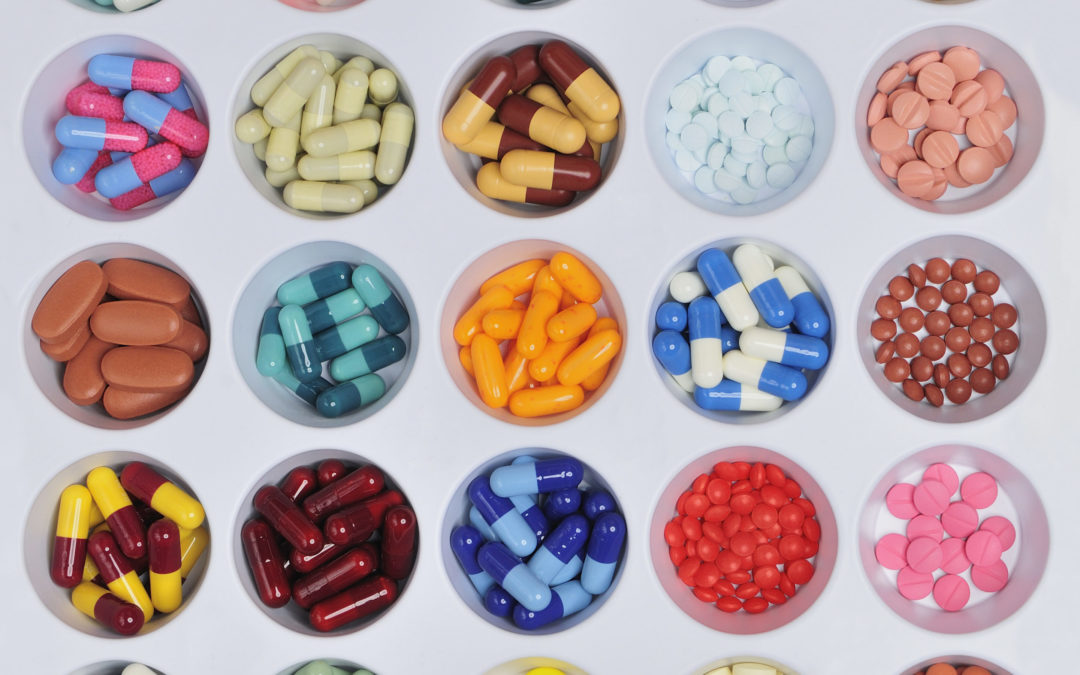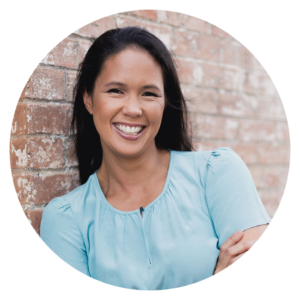Do you ever find yourself in the middle of taking all your meds and wonder, “Do I really need ALL of these meds?”
Maybe it’s when you’re filling your pillbox, paying your bill at the pharmacy, or double checking your list at the doctor’s office.
As a pharmacist working in a primary care clinic, this is a common question I hear from people taking anywhere from 5 to 25 medications.
People start to feel like they have their own personal pharmacy. They are afraid of becoming one of “those sick people” who take too many prescriptions.
It amazes me how many people trust their doctors enough to be willing to take multiple medications for years and not really know how they are benefiting from them.
Here’s where I want to tell you a secret: Only you can know the answer to this question. You might think, “Shouldn’t my doctor know the answer to this question?”
No! Stick with me here and I’ll explain why.
Every medication has a risks versus benefit argument.
Prescription drugs are prescription only because of their inherent risk. That’s why they are prescription and not available over-the-counter.
You want to have a basic understanding of how your meds are benefiting you and their value in your life. Conversely, you should know the risks of each of your medications: side effects that you and your doctor should watch out for and how the medication impacts your life and your pocketbook.
It’s always a judgement call. Is the potential risk worth the potential benefit of this medication? It’s ok to trust the judgement of your doctor, but you deserve to be included in this decision.
In the end, you are the boss of you and decide whether or not to take that pill everyday.
So why is it that the meds just get piled on?
There are several reasons for this:
- The prescribing cascade is a big one, which is essentially adding another medication to combat the side effects of a medication you are already taking. Kinda like, “I take potassium to replace potassium loss caused by the Lasix I take for the swelling that is a side effect of amlodipine that I take to treat the high blood pressure that is caused by the Effexor I take for depression that is caused by my metoprolol.”
- Many medications are given to reduce the risk of diseases you don’t yet have. Having one disease like Type 2 Diabetes puts you at risk for others. An example of this would be heart disease for diabetics, so your doctor follows his or her training and wants you to take that baby aspirin or statin to prevent heart disease.
- People typically don’t self-advocate. It can seem confrontational or disrespectful to question your doctor about why you need so many meds. I find that patients are more likely to quietly NOT fill their prescriptions rather than tell their doctor they won’t take something.
- No one is reviewing your entire list. Doctors do not routinely review your entire medication list due to limited time, keeping appointments very problem-focused, and multiple specialists being involved (think: psychiatrist, cardiologist, neurologist, etc). So if you don’t ask them, “Hey, do I really need all these meds?” no one may be looking critically at your list with this question in mind.
What can I do to REDUCE my medications?
If you are lucky enough to have access to a pharmacist in your clinic, you’re at a huge advantage.
More and more primary care offices are embedding pharmacists into their team-based models, so ask around. You might get the opportunity to have a medication expert carefully evaluate your medication list to make sure every medication you take:
- Is actually needed. Is there a reason for it? Sometimes meds are started for a short-term purpose and no one remembers to discontinue it when it no longer is needed.
- Effective. Is the medication providing the benefit that it is intended to offer? Are we measuring its effect when possible? Is the dose optimal?
- Safe. Can you safely break the drug down and eliminate it through your kidneys and liver? Has the risk vs benefit argument changed as you change over time? This also includes screening for drug-drug interactions–when one medication is interfering with the effect of another medication.
- Is affordable and being used correctly? It is very common for people to take their meds differently than how it is prescribed. This can undermine how the drug is intended to work in the body. If the regimen is too overwhelming or too expensive, a pharmacist knows the tricks of the trade to overcome these kind of problems.
If you don’t have access to a pharmacist in your clinic, don’t despair.
Schedule a visit with your doctor to tackle this question. Make a separate appointment dedicated to ensuring that each of your meds has a benefit for you that outweighs its risks. Focus your doctor on answering the question: “Can any of these be eliminated?”
If you find yourself feeling helpless with this, you’re not alone. And if you’re motivated to take some control over the situation—Bravo! This takes courage!
It’s my passion and mission to help those like you become inspired and empowered to find your own way to health and well-being, with or without medications.
I want to share with you a new and different approach to diseases that are REVERSIBLE, such as Type 2 diabetes, high blood pressure, PCOS, gout, obesity, GERD, and non-alcoholic fatty liver disease. By addressing the CAUSE of these problems, you NEED LESS medications.
After all, I am the pharmacist that wants to help you get OFF your medications! 😉


